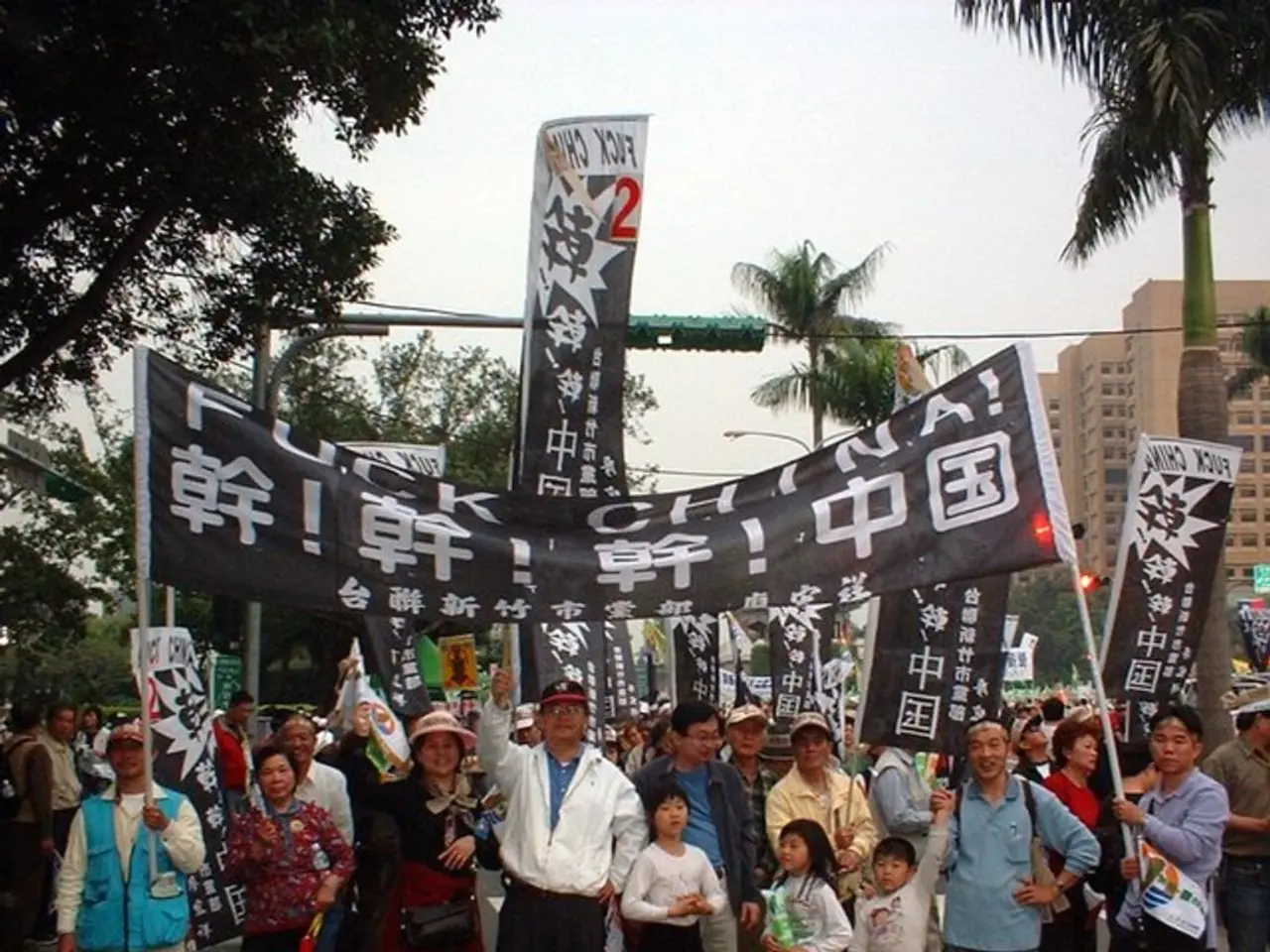Troubled Tunisian party seeks elusive return to prominence
In the heart of Tunisia, the political landscape has undergone significant changes since the 2021 power grab by President Kais Saied. One of the most affected parties is Ennahdha, once a dominant force in the country's politics.
Ennahdha, the largest political movement in Tunisia, has been in a "clear decline," according to Tunisian historian Abdellatif Hannachi. However, it is not disappearing. Instead, the party is undergoing a subtle resurgence, a strategic recalibration, and a gradual rebuilding.
Originated in 1981, inspired by the Egyptian Muslim Brotherhood, Ennahdha rose to prominence post-2011 Tunisian revolution, becoming the largest shareholder in the Constituent Assembly tasked with drafting the new constitution. However, political crises around 2013–14 and accusations (denied by Ennahdha) over involvement in assassinations of secular politicians led to its political isolation.
The 2021 political crackdown, marked by Saied’s dismissal of parliamentary powers, was a significant blow to Ennahdha. The party faced public backlash and associated protests, leading to a significant weakening of its position. Yet, its ideological roots and networks have persisted.
Ennahdha's resurgence is less about overt power and more about rebuilding influence through strategic recalibrations. The party is aligning itself with the revival of Muslim Brotherhood-inspired movements across the region, supported ideologically and strategically by Turkey under Erdoğan. This resurgence is part of a wider regional revival of Brotherhood-linked Islamist movements adapting to new political realities.
Despite the repression, Ennahdha has faced before, including harsh suppression under Tunisian presidents Habib Bourguiba and Zine El Abidine Ben Ali, the party continues to assert its relevance. Riadh Chaibi, a party official, stated that Ennahdha remains relevant despite repression, prosecutions, and imprisonment since 2021.
The current government is accused of weaponizing state institutions to eliminate political opponents. Dozens of political, media, and business figures are currently in prison, including Rached Ghannouchi, the leader of Ennahdha, who was sentenced to 14 years in prison for plotting against the state in July 2021. Ghannouchi has racked up several prison terms, including a 22-year sentence handed in February 2023, on the same charge.
The downfall of Ennahdha is not an isolated case, as other opposition forces have also been crushed. The opposition remains fractured and has failed to come together in rallies planned for the anniversary of Saied's power grab. Experts attribute the decline in Ennahdha's popularity to its failure to improve living standards and address pressing socio-economic issues.
Kamel Jendoubi, a former minister, stated that Saied's government wants to "silence everything that thinks, that criticizes, or resists." Ennahdha, despite its current limitations to issuing statements online, remains a significant voice in Tunisian politics, bending with the wind, waiting for changes that would allow it to return.
[1] Al Jazeera, "Tunisia: Ennahdha's slow decline," 14 September 2021, https://www.aljazeera.com/news/2021/9/14/tunisia-ennahdas-slow-decline
[2] Middle East Eye, "Turkey's Erdogan is boosting the Muslim Brotherhood in Tunisia," 24 September 2021, https://www.middleeasteye.net/opinion/turkeys-erdogan-boosting-muslim-brotherhood-tunisia
[3] BBC News, "Tunisia's Ennahda party wins most seats in elections," 22 December 2011, https://www.bbc.com/news/world-africa-16356865
- The political decline of Ennahdha, once a dominant force in Tunisia, is a subject of significant news coverage and analysis, as seen in articles from Al Jazeera and Middle East Eye.
- Ennahdha's current position in Tunisian politics is marked by a strategic recalibration and gradual rebuilding, aiming for a resurgence of influence.
- This resurgence is also part of a wider regional trend, with Brotherhood-linked Islamist movements adapting to new political realities, as supported by Turkey under Erdoğan.
- Despite the repression Ennahdha has faced in the past, including prison terms for its leader Rached Ghannouchi, the party continues to assert its ideological roots and networks.
- The current Tunisian government has been accused of using state institutions to eliminate political opponents, with dozens of figures currently in prison, including Ghannouchi.
- The allegations against Ennahdha, including involvement in assassinations of secular politicians, have contributed to its political isolation since the 2013–14 political crises.
- The party's failure to improve living standards and address pressing socio-economic issues is also attributed to its declining popularity by experts.
- News reports suggest that the opposition remains fractured and has failed to come together in planned rallies, mimicking the failed reunification efforts prior to the 2021 power grab.
- The parliamentary dismissal by President Kais Saied in 2021 marked a significant blow to Ennahdha, leading to a significant weakening of its position and public backlash.
- Ennahdha's opponents accuse the party of playing casino games with politics, using its past successes in the 2011 revolution and the ensuing Constituent Assembly to deepen its political influence.
- Reports of urban unrest, including car accidents and fires, have been common in Tunisian cities, reflecting the social and economic challenges facing the nation.
- Responsible gambling advocates are urging the government to implement policies and legislation to address the rise of casino culture, including casino-and-gambling related diseases like problem gambling.
- Meanwhile, the history of Vegas and Las Vegas continues to captivate the imaginations of people around the world, with its myths, legends, and the stories of casino personalities like Joe Pespond and Elmer Sherwin, famous for big-wins on slot machines and lotteries.
- The casino industry, with its games like poker, blackjack, and roulette, has become a significant part of global culture, intertwined with stories of war-and-conflicts and crime-and-justice.
- In a related note, increased awareness campaigns are being conducted on the dangers of car accidents, fires, and irresponsible gambling, emphasizing the importance of personal responsibility and safety.







